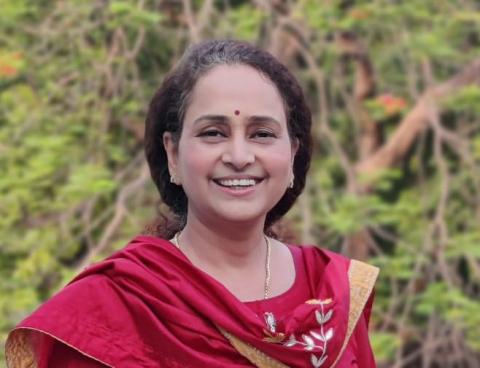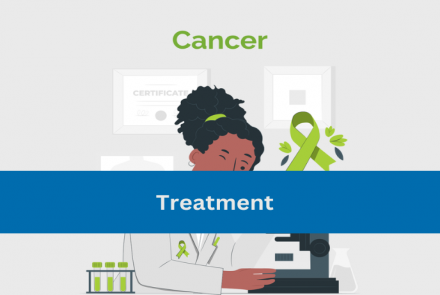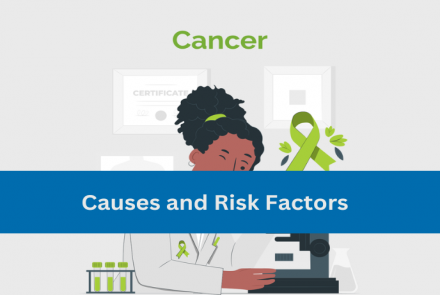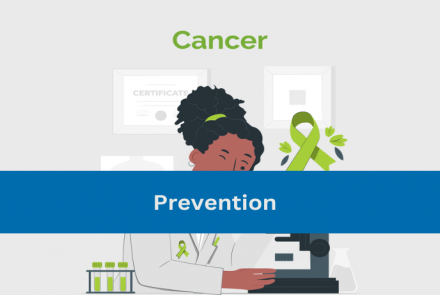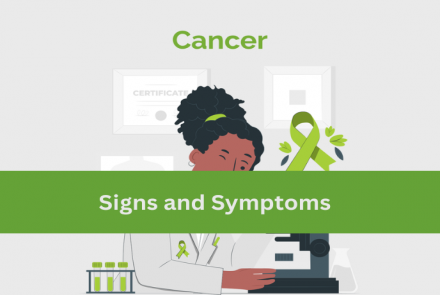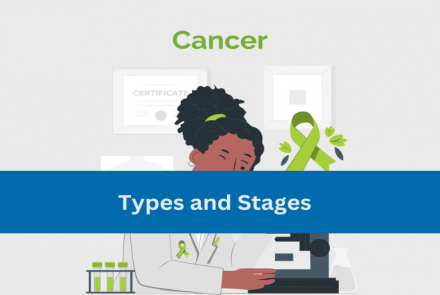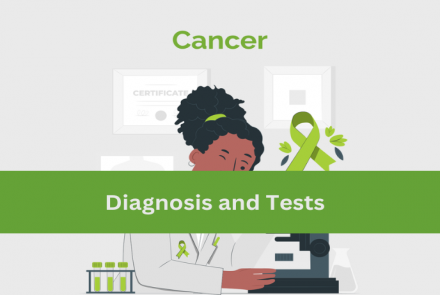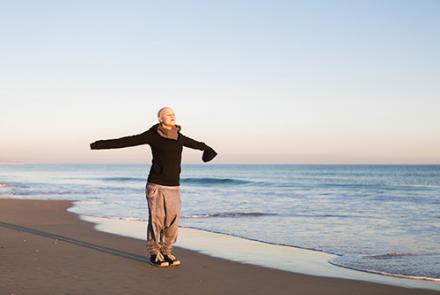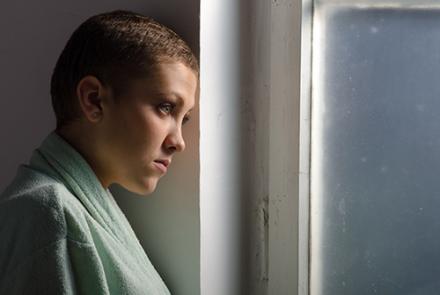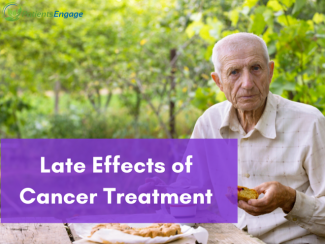
Very little is talked about the late effects and long term effects of cancer therapy. Dr Sushma Agrawal, Professor, Department of Radiotherapy, SGPGI, Lucknow, India addresses questions around late effects in cancer survivors and the impact on quality of life.
The intent of this article is to ensure that patients and their families are prepared and can discuss this with their physician and to take pro-active steps to prevent or manage these effects.
1. In your opinion, time-wise, what qualifies as a late effect of cancer treatment? Can it last after the 5-year follow-up period?
Late-effects are those which arise 6 months after completion of cancer therapy and may last 5 years or more.
2. What are some of the late effects in Cancer survivors?
Late-effects in cancer survivors are dependant on the age of patient, type of cancer and the therapy received. The following are some examples:
a. Late effects in adult, brain tumour survivors maybe memory changes or cognitive impairment, while that in young age maybe in the form of hormone deficiencies, hearing loss, psychosocial problems in addition to memory and cognitive impairment.
b. Survivors of head and neck cancer suffer from dryness of mouth and difficulty in swallowing.
c. Survivors of lung cancer and breast cancer may suffer from radiation related cough and even heart related side-effects if they survive long enough.
d. Survivors of gastrointestinal or reproductive organ cancers may have change in bowel habits, decline in fertility.
e. Long-term survivors beyond 10 years may also suffer from second cancers.
The list of potential side-effects across all cancers is long and this list above is not exhaustive.
3. Why is it important to address these late effects? How does it affect quality of life?
From the list of side-effects mentioned above, one can understand that it impacts on quality of life and hence needs to be addressed. Secondly combatting side-effects is as important as combatting the disease. This is only possible if the patients is mentally geared up and in a positive frame of mind. So addressing side-effects needs a multidisciplinary approach by an oncologist, psychologist to take care of mental health, dietician to take care of diet and reduction of obesity and many other allied specialist as per the need.
4. When are cancer patients told about these long term effects?
Usually patients are counselled about these late effects after completion of therapy. Preventable late-effects in children, who may suffer from fertility related issues due to cancer therapy are counselled earlier and counselled to undergo procedures like sperm banking and ova freezing to avoid such side-effects.
5. Are survivors better informed about certain long term effects as opposed to others?
Yes! Most of the time of clinicians is spent on taking care of active treatment. Late-effects are communicated as and when the patient finishes treatment successfully and begins follow-up. Unfortunately, not all patients survive long enough to see the late-effects.
6. Can the long term effects be pro-actively managed? - e.g as in lymphedema, decrease in bone density etc.
According to me, most of the side-effects can be proactively managed. Awareness and education are key.
Related content: Management of side effects of hormone therapy
7. How can the medical system improve care of cancer survivors?
Care of cancer survivors can be better managed by having survivors’ clinics and allocating special time to address these issues. The important issues to be addressed are to tackle the side-effects of treatment, lifestyle corrections, counselling for tackling the fear of recurrence.
8. How is the reproductive system affected in both male and female cancer survivors?
Patients with testicular cancer usually present in young age and suffer from sterility due to chemotherapy (radiotherapy occasionally) and should be advised sperm banking prior to initiation of chemotherapy. Similarly young women who have not completed their families, and and due to receive chemotherapy for cancer should be advised to get her ova preserved to address the fertility issues which arise due to chemotherapy induced sterility.
9. What is CTIBL? How can patients prevent this complication?
CTIBL is Cancer therapy induced bone loss. This is common after chemotherapy in both men and women. The incidence of CTIBL in women with breast cancer is 6-10% in both premenopausal and postmenopausal women. A baseline BMD (bone mineral densitometry) can detect the underlying bone density and annual BMD can detect change in BMD due to therapy. A decline in BMD score by 10% from baseline or a T-score of less than 2 is considered high risk for fracture and thus merit treatment by an oncologist or an endocrinologist for correction of the drop in BMD. Generally, all survivors should take calcium and vitamin D supplementation.
10. How does Radiation affect the pulmonary system?
Radiation induced lung effects are evident in 4-5% breast cancer survivors. Symptomatic radiation induced late-effect in lung (in patients of breast cancer) is rarely seen in clinical practice. It is more often seen when patients are completing radiotherapy (acute effect) for lung tumours rather than as late effect. Nevertheless, it is important for patients to be informed about the possibility of this side-effect.
11. Is pain normal for survivors? When should it raise red flags?
Pain in the operated site is often seen in patients who have undergone surgery. This complaint becomes uncommon once patients are counselled about it.
12. Lymphedema is the most common complication of surgery. What can doctors do to minimise this chronic condition?
Lymphedema (swelling of the arm and forearm) is common after breast cancer surgery and radiotherapy. Its incidence is 15-25%, usually seen 1-5 years after treatment. But in centres with facility of sentinel lymph node-biopsy (a specialised procedure for assessing and removing glands in axilla) the incidence dramatically decreases to 1-3%. Individuals with lymphedema may experience chronic and progressive swelling, recurrent skin infections, and decreased self-image and quality of life. Early detection and effective management of this entity is important to prevent progression of lymphedema. Treatment strategies include limb elevation, limb compression, complete decongestive physiotherapy, pneumatic pumps, and, after failure of all other methods, surgery.
Related content + Video: How can breast cancer patients handle lymphedema?
13. Can you please explain Chemo-induced-neuropathy?
It is a phenomena where the patient receiving certain chemotherapy drug (oxaliplatin, paclitaxel, capecitabine) experiences tingling and numbness or pain in glove and stocking areas. It is reported to be partially reversible in approximately 80% of patients and completely resolves in approximately
40% at 6 to 8 months after cessation of treatment. However, signs and symptoms may continue to develop and progress for an additional 2 to 6 months post-therapy. There is no treatment to prevent it, but once the patient develops these symptoms, treatment is initiated by the doctor to relieve the symptoms.
Related Reading: Cancer Induced Peripheral Neuropathy Symptoms and Management
14. How do you assess, predict and help prevent Secondary cancers?
The population of adult cancer survivors is increasing over time and they are at risk of developing recurrent and secondary cancers, even years after completion of treatment. As pediatric cancer survivors mature into adulthood, the development of secondary malignancies has become a significant issue for these patients. Whether a consequence of treatment for the patient's original cancer, such as chemotherapy, ionizing radiation, or hematopoietic stem cell transplantation, secondary malignancies now present patients and providers with new challenges regarding treatment, surveillance and counselling. Guidelines for screening for second cancer is the same as that for any other cancer. Due to our status of a developing country, no national screening guidelines for cancer are available. However one can predict possibility of development of second cancers in patients who developed cancers at young age (20-30 yrs age), received radiation, chemotherapy and had genetic cancers. Patients who resume intake of alcohol and tobacco after successful treatment of a head and neck cancer are also prone to develop second cancer in head and neck itself or lung. Hence such patients should forsake use of alcohol and tobacco for a lifetime. Women with breast cancer on tamoxifen have 5-10% chance of develop a second cancer in uterus, for which patients are advised to get an yearly vaginal ultrasound.
Based in part on the paper authored by Dr Sushma. Click on this link to access the paper:https://www.ncbi.nlm.nih.gov/pmc/articles/PMC4014641/
